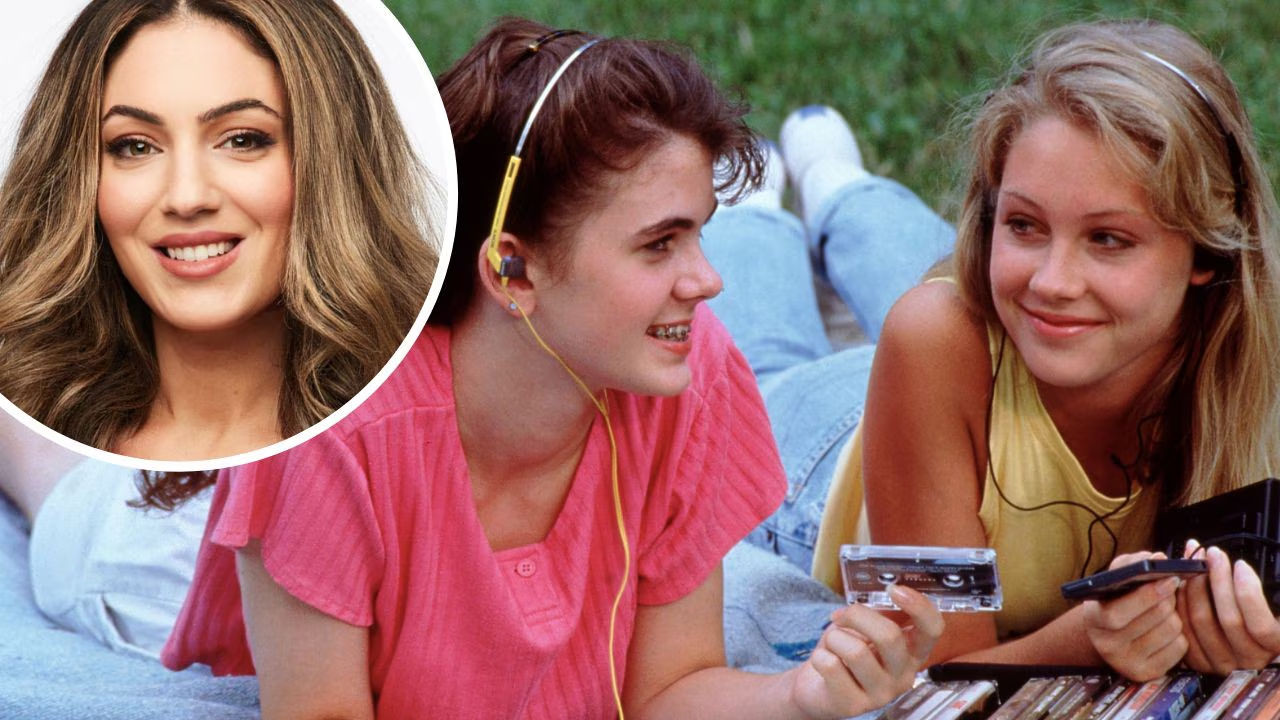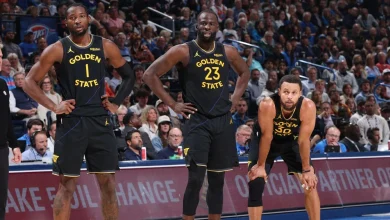‘Your teenager will thank you later for this’

I grew up in a world that doesn’t exist anymore.
Friendship was knocking on someone’s door, not sliding into their DMs. Saturday mornings were for cartoons and cereal-stained couches, not endless scrolling through feeds.
Happiness came from mixtapes painstakingly recorded off the radio, epic bike rides with scraped knees as badges of honour, tree forts built out of sheer stubbornness, and nights building blanket forts and begrudgingly going inside after our parents called us in for the fourth time.
Those memories carry a kind of ache now, a nostalgia for simplicity, a quiet wish that joy could still feel that easy.
People my age, the so-called “bridge generation”, were the last to know life before screens and the first to grow up adapting to them.
We survived payphones, dial-up internet, and VHS rewinds, then watched the world transform into something faster, louder, and impossible to switch off.
And now we’re the parents, trying to raise children in a digital environment we can barely keep up with ourselves.
My son is eight. He’s smart, curious, and full of life. He also loves the iPad a little too much.
There are days I let him stay on it longer than I should, before dragging him outside to play.
I tell myself it’s okay, that I’m tired, that he’s happy, that everyone does it. But there’s always this flicker of guilt because deep down, I know what that screen is doing to his mind.
We all do.
That’s why I support Australia’s decision to delay social media access for kids under 16 – not ban it, delay it.
Because this isn’t about denying them something. It’s about protecting them until they’re old enough to handle it.
When News Corp Australia launched its Let Them Be Kids campaign last year, we wanted to start a national conversation about that protection.
The video in this story captures that perfectly. If we would never hand our kids alcohol or cigarettes, why do we hand them social media?
Remember when people said smoking was a personal choice? Or that drinking was just “part of growing up”?
It took decades, but culture finally shifted.
We stopped giving kids cigarettes “just to try.”
We stopped normalising alcohol for teenagers.
We did that not because the government forced us – but because, as a society, we decided it wasn’t worth the risk.
That’s the kind of cultural change we need now.
I’ve spent a great deal of time interviewing online child safety experts, academics, psychologists, people on the front line combating child pornography and sextortion, and families who have tragically lost their kids because of social media.
Critics call the new age restriction overreach, a “nanny state” move, an infringement on parental choice.
But I think that misses the point. This isn’t about the government raising our kids for us; it’s about recognising that parents are fighting an unwinnable battle against trillion-dollar tech companies whose business models depend on keeping users – including our children – hooked.
Because if we’re honest, none of us want to see our kids trapped in the scroll. None of us want to watch them measure their worth in likes and views.
But that’s what happens when a 13-year-old girl posts a photo and it’s met with silence, or a 12-year-old boy gets pulled into algorithmic rabbit holes of violence or hate.
We talk about resilience, but we forget how fragile identity is at that age. Social media accelerates everything; comparison, exposure, pressure – before a child’s brain is even wired to cope with it.
And yes, parents play a role. We need to model healthy behaviour, but also educate our kids to become responsible online digital citizens.
One expert I spoke to made her daughter do a report on the social media app she wanted.
She listed the pros and cons, proposed rules for usage, and came up with consequences if those rules were broken before she was allowed to use the app. I think that’s brilliant.
But the truth is, it’s naïve to pretend that discipline alone can compete with systems designed by behavioural scientists to keep our children scrolling endlessly.
So maybe “ban” isn’t the right word. Maybe we need to think of it as a pause. A delay. A chance to give our kids the same luxury we once had: time to grow up before the world starts watching.
As a parent, I want my son to have a childhood that feels real. I want him to scrape his knees, to get bored, to play soccer without worrying about being filmed. I want him to learn confidence from connection, not validation.
That’s what Let Them Be Kids is really about. Not control. Not censorship. But preservation.
We can’t turn back time, the world will always be digital. But we can slow down how early our kids are thrown into it.
We can create new norms, where it’s perfectly acceptable to say, “No, my child doesn’t have social media yet”, just as we’d never offer them alcohol or a cigarette.
One day, our children will be adults who can choose for themselves. When that time comes, I hope they enter the digital world with curiosity, not dependency, with confidence, not anxiety.
Until then, the best thing we can do is simple. Let them be kids.





